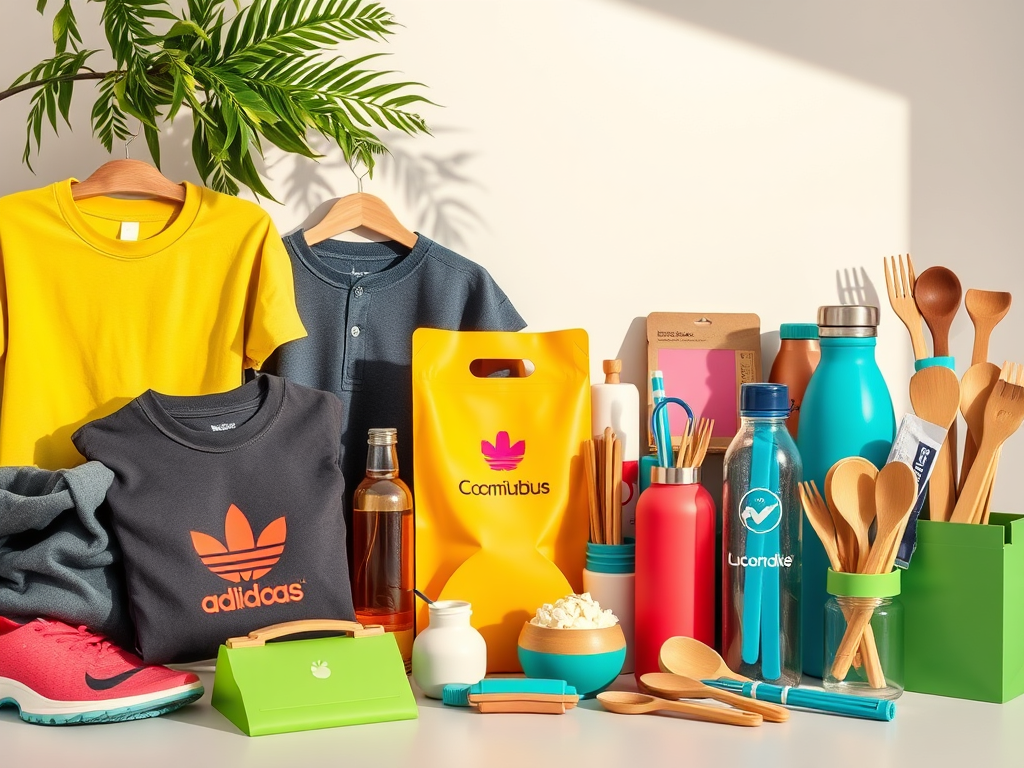Why Increased Tariffs Should Not Dissuade U.S. Companies from Purchasing Promotional Products
In the ever-evolving landscape of global trade, U.S. businesses are continuously faced with new challenges, including fluctuating tariffs on imported goods. While increased tariffs can impact pricing strategies, they should not deter companies from leveraging promotional products as a powerful marketing tool. Promotional products remain one of the most effective ways to build brand recognition, engage customers, and create lasting impressions. Fortunately, many effective promotional items are either manufactured domestically or remain unaffected by tariffs, allowing businesses to maintain their marketing strategies without undue financial burden.
The Power of Promotional Products in Branding
Promotional products are a cornerstone of successful marketing campaigns. According to the Advertising Specialty Institute (ASI), promotional items have one of the highest return-on-investment (ROI) among marketing tactics. Studies indicate that 85% of consumers remember the brand associated with a promotional item they received, and nearly 60% keep the product for over a year, reinforcing brand visibility. This extended brand exposure is unmatched by many other forms of advertising, such as digital ads, which can be easily ignored or forgotten.
Companies that continue to invest in promotional products, despite tariff concerns, benefit from maintaining a consistent and impactful marketing presence. Whether at trade shows, networking events, or in customer appreciation campaigns, promotional products create a tangible connection between the brand and its audience.
Promotional Products Unaffected by Tariffs
Although some tariffs affect imported promotional goods, many high-impact marketing products are sourced domestically or remain tariff-free. Companies can still make strategic choices when selecting promotional items, ensuring that their branding efforts remain cost-effective. Here are several examples of promotional products that are minimally impacted by tariffs:
1. Printed Apparel
- T-shirts, hoodies, and caps remain some of the most effective promotional products, providing long-term brand exposure. Many American-based apparel companies manufacture and print products domestically, mitigating the risk of tariff-related price increases.
- High-quality, U.S.-made apparel brands like Bella+Canvas and American Apparel offer stylish, customizable options that support local businesses while serving as effective brand ambassadors.
2. Eco-Friendly and Sustainable Products
- Sustainability is a growing trend in promotional marketing, and many eco-friendly products are made in the U.S. or sourced from non-tariff-affected regions.
- Items such as bamboo utensils, reusable water bottles, and recycled notepads not only avoid tariff complications but also align with corporate social responsibility (CSR) initiatives, resonating with eco-conscious consumers.
3. Locally Made Office Supplies
- Branded office supplies, such as notebooks, pens, and planners, are staples in promotional marketing and can be easily sourced from domestic suppliers.
- U.S.-based manufacturers, such as Bic and Rite in the Rain, offer high-quality, customizable office supplies that reinforce brand awareness in professional settings.
4. Technology Accessories
- With the increasing use of technology in everyday life, promotional tech accessories remain a favorite among businesses.
- Many items, such as custom-branded USB drives, webcam covers, and pop sockets, are produced in regions unaffected by trade disputes, ensuring stable pricing and availability.
5. Drinkware and Custom Packaging
- Drinkware, including ceramic mugs, stainless steel tumblers, and sports bottles, is another category of promotional items that can often be sourced domestically.
- Brands like Tervis and YETI manufacture high-quality drinkware in the U.S., allowing businesses to offer premium promotional items without additional tariff costs.
Adapting to Market Changes Without Sacrificing Brand Presence
While increased tariffs can add pressure to procurement decisions, businesses can adapt by sourcing promotional products strategically. By working with domestic manufacturers or choosing items that remain competitively priced despite tariffs, companies can continue to benefit from the lasting marketing impact of branded merchandise.
Additionally, businesses can explore bulk purchasing, early procurement, or partnerships with local suppliers to mitigate cost fluctuations. Many promotional product companies offer tiered pricing structures, allowing businesses to secure discounts when ordering in larger quantities.
Conclusion
Increased tariffs should not dissuade U.S. businesses from investing in promotional products. The marketing power of these tangible, long-lasting items remains undeniable, and companies have numerous options to source promotional goods without excessive cost concerns. By focusing on domestically produced items, eco-friendly alternatives, and technology accessories, businesses can maintain their branding efforts while navigating tariff-related challenges. Ultimately, promotional products continue to be an invaluable tool for fostering customer loyalty, increasing brand recognition, and driving long-term business success.


Comments are closed